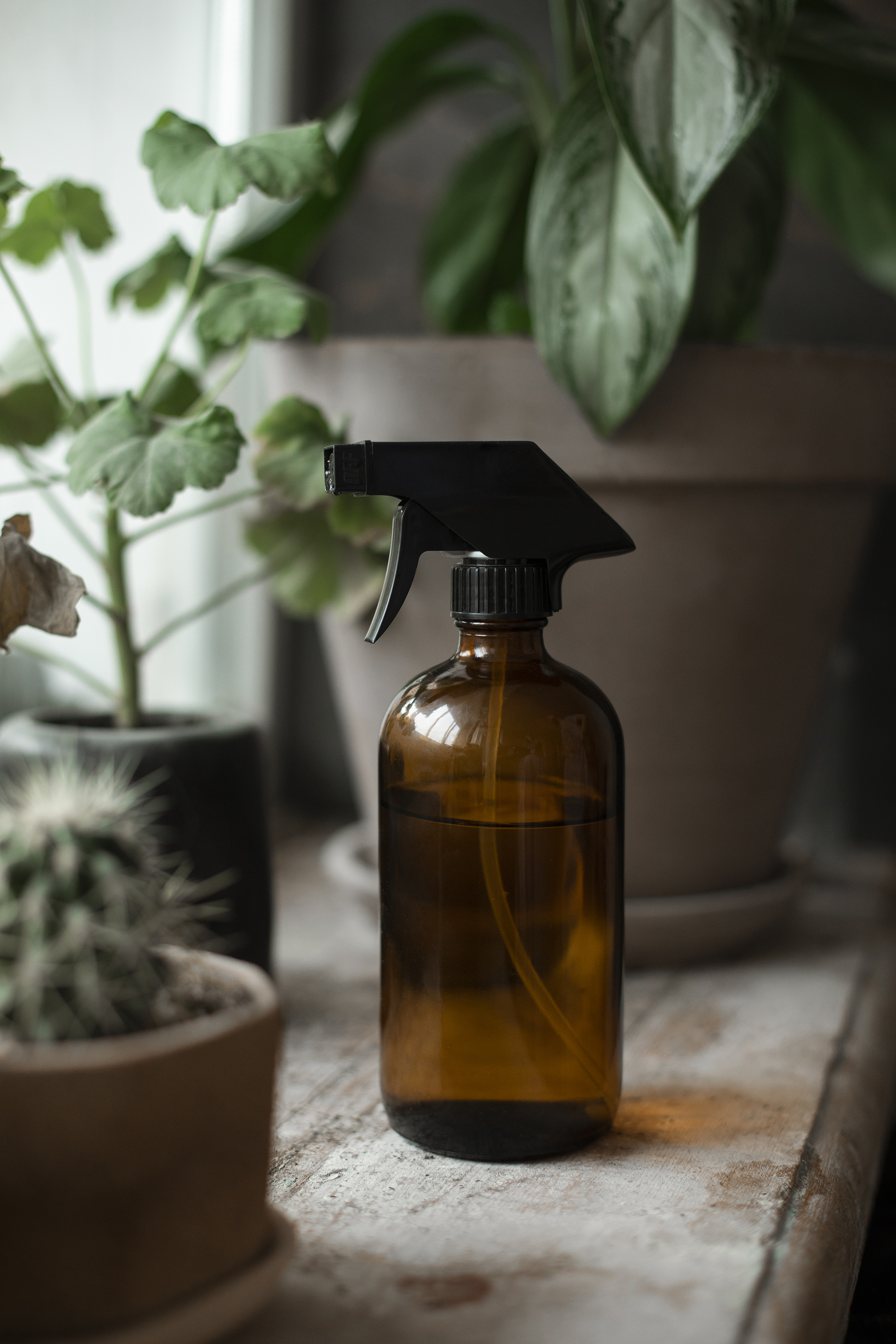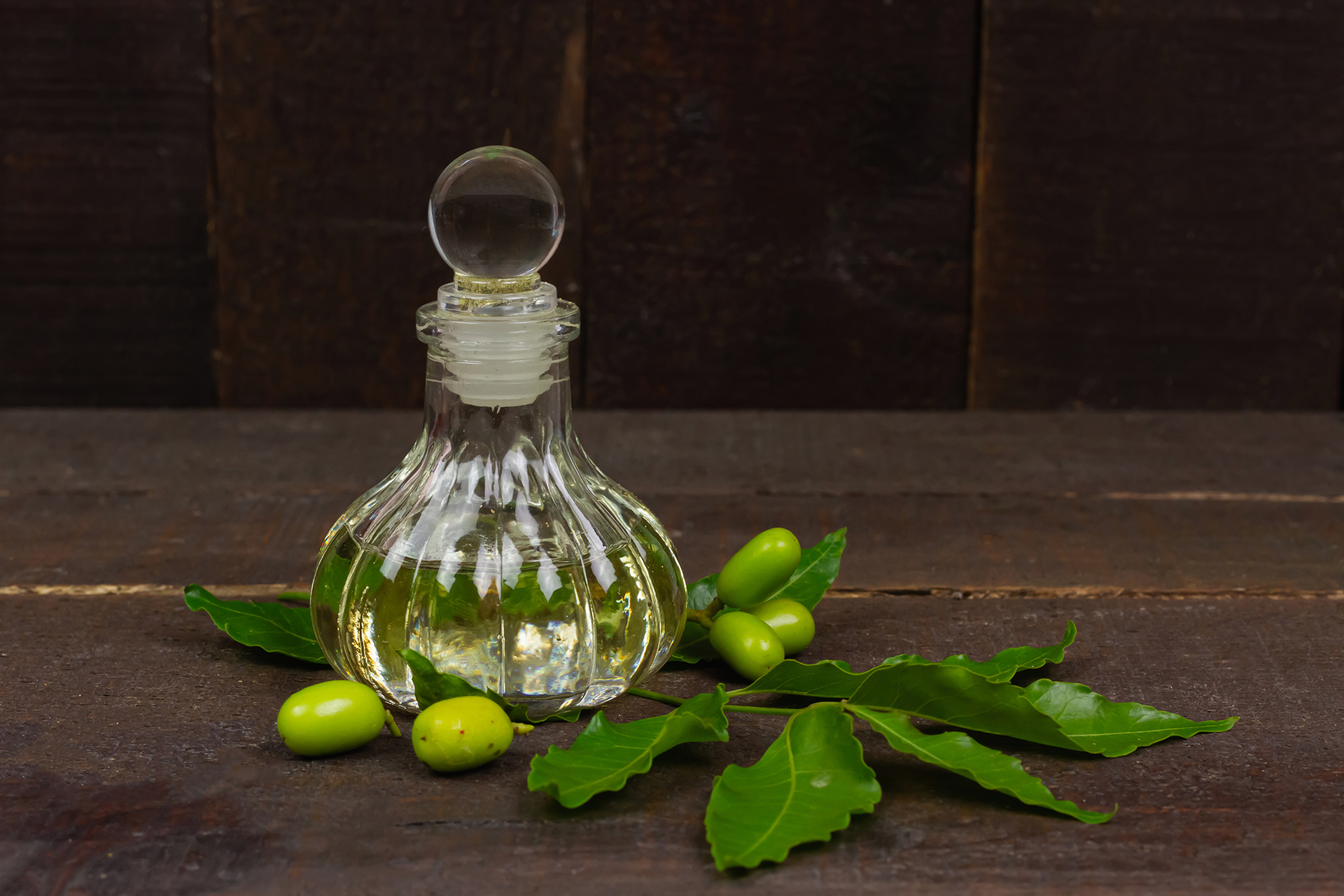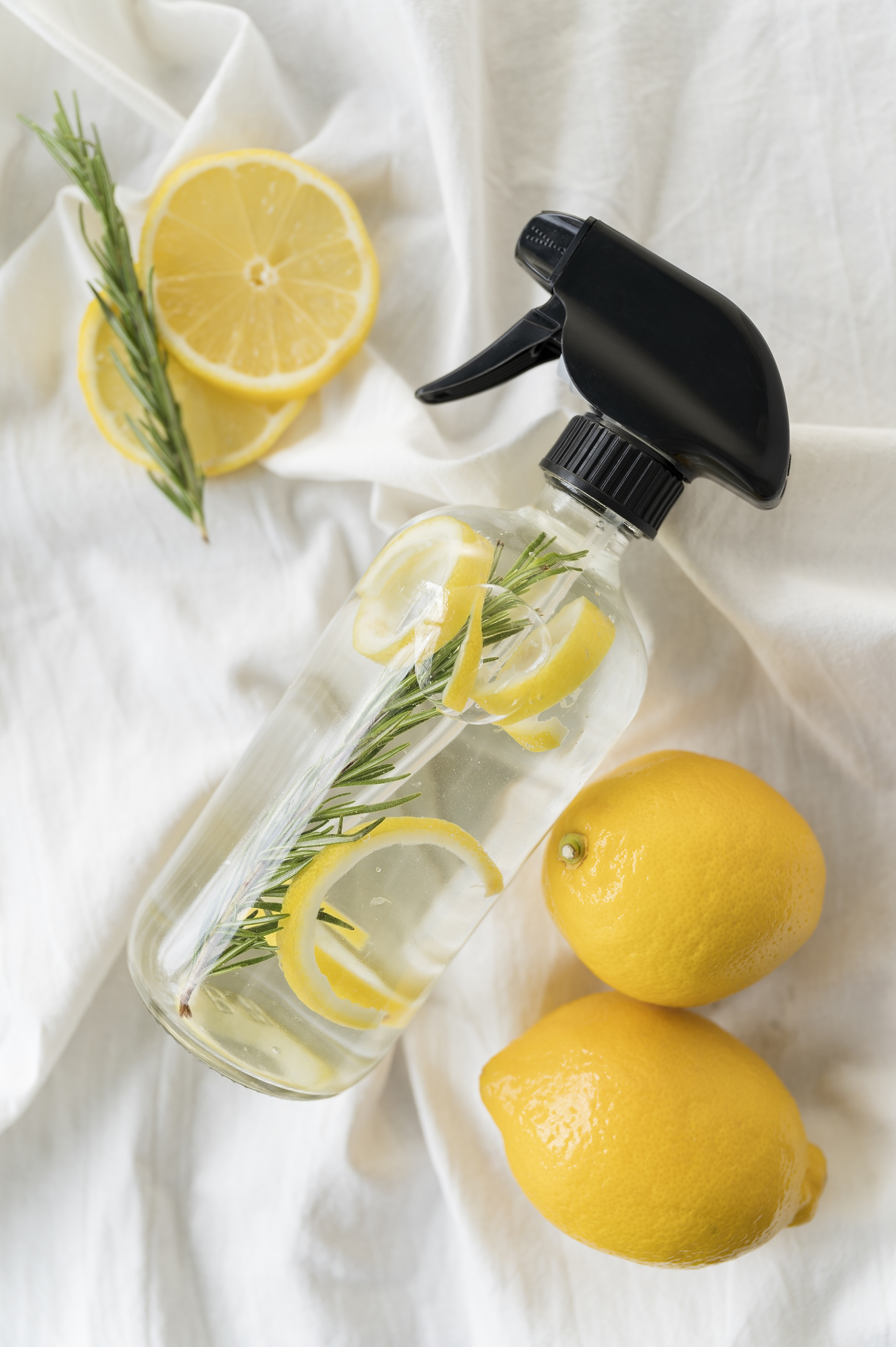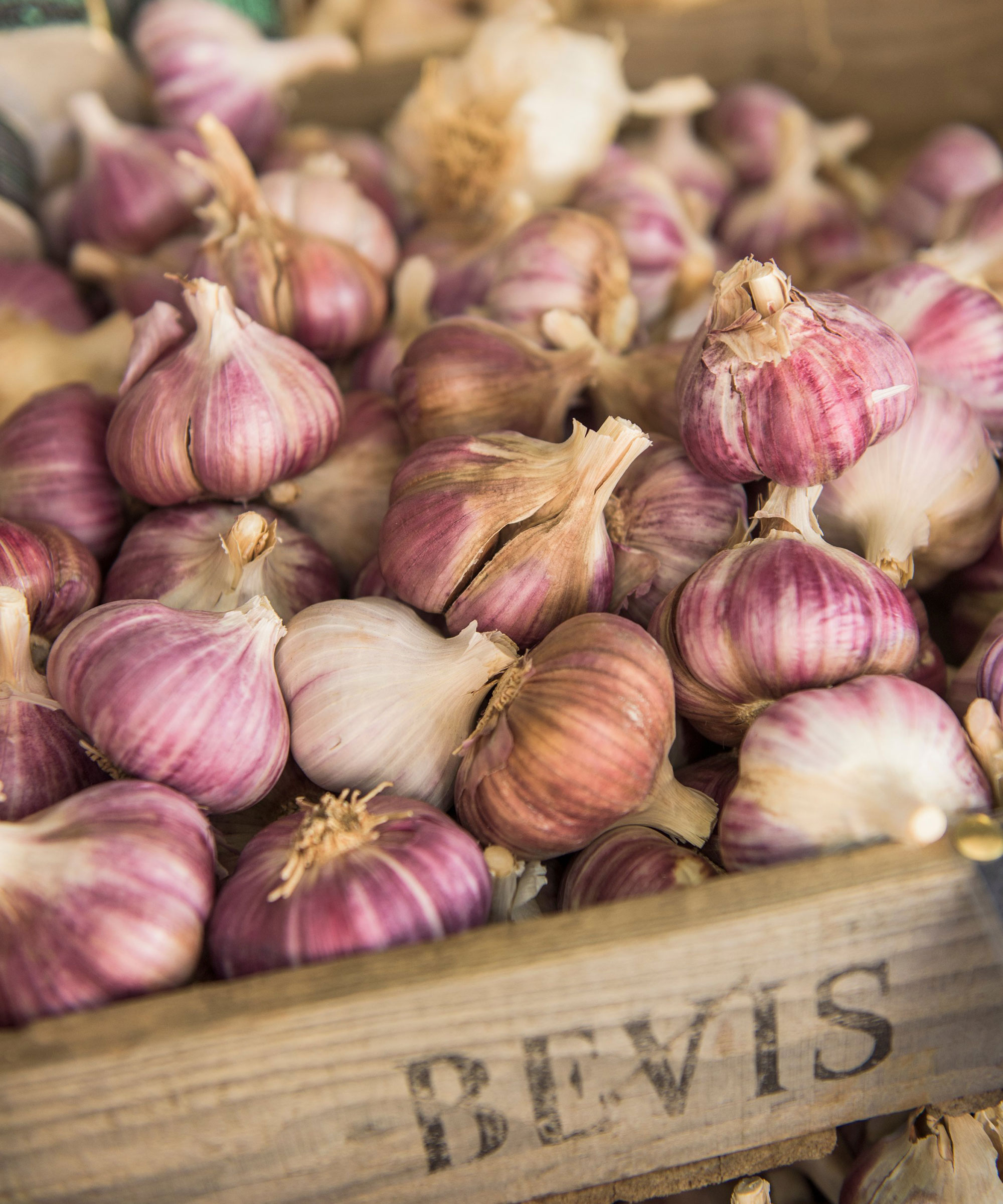What Homemadespray Can I Use To Keep Animals Away
While insects are a valuable part of our gardens' ecosystems, sometimes they stop up tucking into our vegetable harvests or eating their way through our flower buds before they flower.
These moments can have u.s.a. reaching for the insecticides. However, filled with toxic chemicals, commercial insecticides often stand at odds with the sustainable garden ideas that we want our plots to embody.
This is where homemade insect sprays and deterrents come into their own. Created from items you lot would find in your store cupboard, they are quick and effective means to ward bugs off your prized plants.
'Bootleg garlic, nettle, soap, tomato plant and basil sprays are constructive confronting aphids, mites and thrips. The aim is non to impale off all the insects in your garden, but rather aim for a healthy ecosystem,' says garden expert Leigh Clapp.
Problems sprays – half dozen homemade recipes for plants
Bootleg bug sprays should merely be used as a short term solution – at the same time as treating pests, think of adding other plants to your garden that will encourage insects and animals that prey on the trouble bug.
'Disaster-proof your garden through plant diversity. The wider the range of plants, the less they are plagued by pests, so that if a disease or pest occurs only a limited number of susceptible plants will be afflicted,' continues Leigh.
For case, if you want to get rid of slugs, can y'all concenter more than birds? If you demand to get rid of aphids, could you lot plant angelica, fennel and dill nearby to attract ladybirds? At that place are lots of unlike companion planting ideas that will help you lot to reduce pests in your plot. Past creating a balanced garden, you will detect that you take less and less need for problems sprays.
Earlier using whatsoever of these bug sprays on your plants, e'er do a patch-exam. Spray a small amount onto a few leaves of the plant and wait 24 hours to see if there is any damage. Avert using whatsoever foliar sprays during the heat of the day as the exposure to the dominicus can cause leaf burn down.
1. Insecticidal soap

(Prototype credit: Getty Images)
A popular bug spray for treating a wide range of pests, homemade insecticidal soap, consists of soap, oil and water. Homemade insecticidal soap is oft the first port of call for many gardeners every bit the ingredients are all shop cupboard essentials.
To create insecticidal soap combine one cup of vegetable oil with one tablespoon of dishwashing soap or pure Castile liquid soap. For this method, as well equally whatever others that call for dishwashing soap, avoid those that comprise a degreaser or bleach as these can crusade more harm than good. Utilise this oil and soap mixture as a concentrate and dilute one teaspoon with 2 cups of warm water into a spray bottle. Once mixed with water, the solution's efficacy will just terminal for a day.
Insecticidal soap is one of the best ways of getting rid of aphids, equally well every bit lacebugs, leafhoppers, mealybugs and thrips.
2. Neem oil problems spray

(Image credit: Getty Images)
An organic insecticide, neem oil has seen a rise in popularity every bit a method to treat everything from insects through to fungi.
'Neem oil has been used in Bharat for thousands of years and is a trusted method to continue on top of pests, without any of the nasties,' explains John Maree, co-owner of OxyPlants (opens in new tab). 'A spray of Neem oil on the tops and undersides of your plant's leaves will help remove several pests, including mites, whitefly, aphids, thrip, and mealybugs, at every stage in their life cycle. Using neem oil also helps to foreclose powdery mildew, besides.'
To utilise neem oil as a homemade problems spray mix i to 2 tablespoons of pure, cold-pressed neem oil with a gallon of water. You tin can also add i to two teaspoons of dish soap to the mix to help the neem oil attach to the plants.
Alternatively, you can use neem oil as a root soak to treat root rot. Mix one gallon of h2o with ii tablespoons of neem oil and one teaspoons of pure Castile liquid soap (to help the neem oil adhere). Utilize a small corporeality equally a exam and expect 24 hours. If all is well, then apply two or three cups to the soil around the found, then continue the handling as a replacement to the watering bicycle.
A do good of using neem oil over other pesticides is that information technology doesn't damage birds, pets or beneficial insects. This is because neem oil gets captivated into the establish's tissue rather than just sitting on the surface and so only affects any insects that ingest the constitute.
iii. Vinegar spray

(Prototype credit: Getty Images)
It seems that there is no end to the abilities of vinegar, especially when you take into account the numerous ways of cleaning with vinegar, but did you know that information technology tin can also exist used as a problems spray?
1 of the easiest homemade issues sprays, only mix 1 cup of white vinegar with three cups of water. You lot can also add together one-half a teaspoon of dishwashing soap to help the solution adhere. Shake thoroughly and apply to the affected areas.
The acerb acid in the vinegar will treat a wide range of garden pests simply information technology requires contact. If yous have whitefly eggs be sure to spray under the leaves. Furthermore, white vinegar has a strong olfactory property which has been reported to repel ants and other olfactory property driven pests.
'If you are wanting to treat houseplants with a vinegar spray, endeavour adding a few drops of essential oil or some slices of lemon peel or rosemary sprigs to help atmosphere the vinegar smell,' advises Period Living editor Melanie Griffiths.
4. Garlic spray

(Image credit: Future)
You may accept heard that onions and garlic make proficient companion plants every bit the smell of their foliage helps to repel aphids, slugs and carrot fly. This spray takes information technology to the next level.
'Puree two garlic bulbs with 1 tablespoon of vegetable oil, let it sit overnight, strain, add one teaspoon of mild liquid soap and 4 cups of water to fill the spray container,' recommends Leigh Clapp.
Store this mixture in the refrigerator until needed. In the evening, spray both sides of the leaves with the spray then reapply every few days when your plants are suffering with infestation. Alternatively, use every i to two weeks equally a deterrent.
If you want to be even more sustainable, why not learn how to grow garlic so that you can have an endless supply of garlic spray – plus extra cloves that yous can add to your favorite meals?
v. Tomato leaf spray

(Epitome credit: merlinpf / Getty Images)
If you lot've e'er tried growing tomatoes, y'all will exist familiar with the characteristic scent of their leaves, but did you know that these leaves contain a compound chosen alkaloid which can be used to create a spray that is toxic to aphids and mites? To make a tomato leaf spray, mix equal quantities of chopped upwardly tomato plant leafage with water and exit to steep overnight. Permit this steep overnight, before straining into a spray bottle and applying to the establish's leaves.
This is a keen style to recycle tomato leaves in one case you've pruned them – you can learn how to clip tomato plants for a maximum yield.
6. Cinnamon spray

(Image credit: Getty Images)
If you've ever grown plants in pots, you'll be familiar with the problem of devious mushrooms. However, this can be easily resolve with a simple cinnamon spray. Mix ii teaspoons cinnamon pulverisation into four cups of warm water. Let this to steep overnight then strain through a java filter and then pour into a spray canteen. Mist the potting soil and plants.
Cinnamon spray is as well reported to exist an effective handling to go rid of ants. If you take an pismire problem in your pots or desire to keep ants abroad from dining or patio areas, endeavour applying cinnamon oil or powdered cinnamon to create an effective barrier.
What is a natural bug killer for plants?
Vinegar is a really effective natural problems killer for plants. Dilute it 1:1 with water in a spray bottle and spray information technology over and under the leaves of affected plants. Yous can besides use it effectually the house to deter bugs within; the vinegary odor will quickly dissipate.
Which bootleg bug spray is all-time for repelling mosquitoes?
The all-time homemade bug sprays for repelling mosquitoes are those with a strong smell that mosquitoes hate. Other than citronella, which you are probably already familiar with as a musquito repellent, they include the following essential oils:
- Catnip
- Cinnamon bark
- Geranium
- Lavender
- Lemon eucalyptus
- Peppermint
- Pine
- Rosemary
Source: https://www.homesandgardens.com/gardens/homemade-bug-sprays
Posted by: corsochaused.blogspot.com


0 Response to "What Homemadespray Can I Use To Keep Animals Away"
Post a Comment